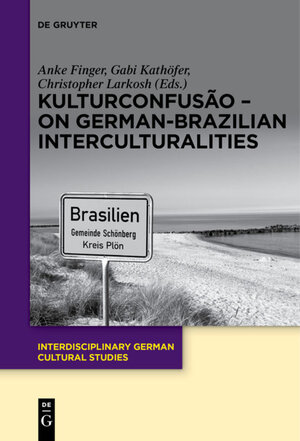
×
![Buchcover ISBN 9783110408096]()
„This volume of essays is a valuable contribution to the field of transcultural studies as it gives rise to new questions pertaining to intercultural encounters and their history. It is an informative and essential read for scholars and students of Portuguese or German Studies. Furthermore, it is certainly useful for scholars of transnational studies, art history, history, and anthropology, who hopefully will continue the dialogue in the near future.“
Denise Saive in: Luso-Brazilian Review 54:2, E6-7
KulturConfusão – On German-Brazilian Interculturalities
herausgegeben von Anke Finger, Gabi Kathöfer und Christopher LarkoshThe analyses of German and Brazilian cultures found in this book offer a much-needed rethinking of the intercultural paradigm for the humanities and literary and cultural studies. This collection examines cultural interactions between Germany and Brazil from the Early Modern period to the present day, especially how authors, artists and other intellectuals address the development of society, intervene in the construction and transformation of cultural identities, and observe the introduction of differing cultural elements in and beyond the limits of the nation. The contributors represent various academic disciplines, including German Studies, Luso-Afro-Brazilian Studies, Cultural Studies, Linguistics, Art History and the social sciences. Their essays cover a wide range of works and media, and the issues they address are relevant not only for each of the scholarly disciplines involved, but also in discussions of current cultural practices in connection to all forms of media. The collection thus serves as a model for further intercultural research, since it calls into question the very terms through which we understand the relationships between cultures, as well as their products, practices, and perspectives.





